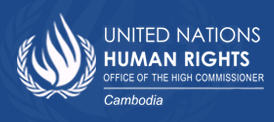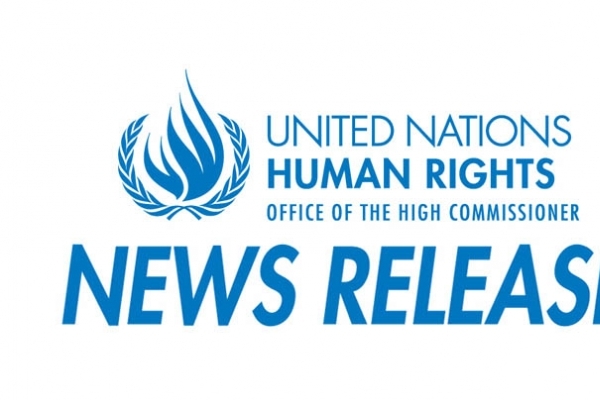

NEW YORK (27 October 2017) – People around the world are suffering horrific violations of their human rights based on their actual or perceived sexual orientation, gender identity and gender expression and immediate action is needed to stop it, a UN rights expert has warned in a landmark address to the UN General Assembly in New York.
“It is unconscionable that people with an actual or perceived sexual orientation, gender identity and gender expression different from a particular social norm, are targeted for violence and discrimination in many parts of the world,” said the UN’s first Independent Expert on protection against violence and discrimination based on sexual orientation and gender identity, Vitit Muntarbhorn.
“LGBT people are suffering a crucible of egregious violations, including killings, rape, mutilation, torture, arbitrary detention, abduction, harassment, physical and mental assaults. They are subjected to lashings and forced surgical interventions, bullying from a young age, incitement to hatred and pressures leading to suicide.
“More than 70 countries around the world today still criminalize same-sex relations, and in some of them the death penalty may be applied,” he added, presenting his full report on the global challenges and the action needed.
“Even where there is no law criminalizing consensual same-sex relations, laws on public decency, public order and social peace are used in some countries to incriminate people under the umbrella of sexual orientation, gender identity and related gender expression.”
Mr. Muntarbhorn said all laws criminalizing same-sex relationships should be removed from the statute books, and no other legal measures should be used to target sexual orientation, gender identity and gender expression for the purpose of consolidating power and suppressing dissent.
It was also imperative to remove the death penalty for all cases related to the criminalization of sexual orientation, gender identity and related gender expression, he stressed.
“There is a need for effective anti-discrimination measures covering both the public and private spheres. Not only formal but substantive, not only de jure but also de facto, in addition to the building of a community open to understanding and respecting sexual and gender diversity,” the expert added.
“To be effective, anti-discrimination frameworks should provide for effective measures to investigate alleged violations, redress for victims and accountability for alleged perpetrators.”
Human rights defenders were being increasingly targeted for their work in raising issues of sexual orientation and gender identity, the expert said, adding that this was another area of great concern.
“Non-governmental organizations, human rights defenders and activists, as well as independent national human rights institutions, play a crucial role in the advancement of an inclusive agenda for all without discrimination and distinction, including through the promotion of understanding of and respect for human rights and gender diversity,” Mr. Muntarbhorn said. “They are agents of change which can activate significant reform processes.”
Mr. Muntarbhorn said the establishment last year of his mandate to promote action against violence and discrimination based on sexual orientation and gender identity was a major step forward.
“It is anchored in international human rights law, and it is a momentous commitment to multilateralism,” he said. “It is an invitation to be forward looking and an incentive to move forward together.”
Mr Muntarbhorn said the “universal umbrella of human rights” offered a blueprint for the respect of diversity and appreciation of our common humanity.
ENDS
Mr. Vitit Muntarbhorn (Thailand) was appointed as the first Independent Expert in protection against violence and discrimination based on sexual orientation and gender identity by the Human Rights Council in July 2016. He is an international law professor. He is currently Emeritus Professor of law at the Chulalongkorn University in Bangkok. In 2004, Prof. Muntarbhorn was awarded the UNESCO Human Rights Education Prize. In 2006, he was Co-Chairperson of th drafting committee of the Yogyokarta Principles on the Application of International Human Rights Law in relation to sexual orientation and gender identity.
The Special Rapporteurs are part of what is known as the Special Procedures of the Human Rights Council. Special Procedures, the largest body of independent experts in the UN Human Rights system, is the general name of the Council’s independent fact-finding and monitoring mechanisms that address either specific country situations or thematic issues in all parts of the world. Special Procedures’ experts work on a voluntary basis; they are not UN staff and do not receive a salary for their work. They are independent from any government or organization and serve in their individual capacity.
For more information and media inquiries, please contact:
Mr. Damianos Serefidis (+41 79 444 48 60, dserefidis@ohchr.org)
In New York: Ravina Shamdasani (+1 917 367 2227 / ravina.shamdasani@un.org) or Nenad Vasic (+1 212 963 5998 / vasic@un.org
Concerned about the world we live in? Then STAND UP for someone’s rights today. #Standup4humanrights and visit the web page at http://www.standup4humanrights.org